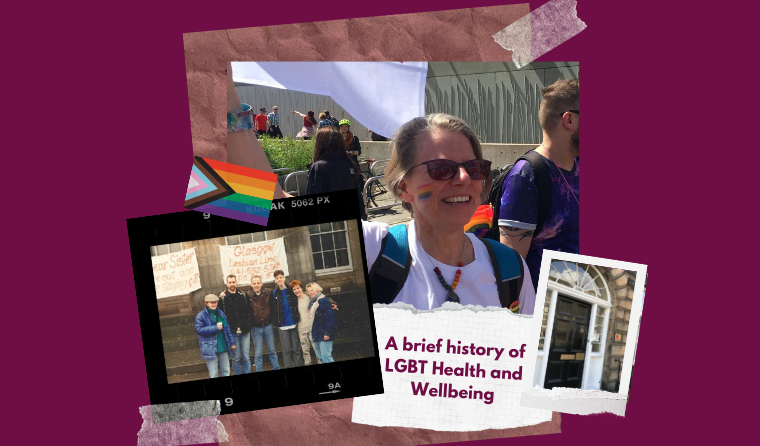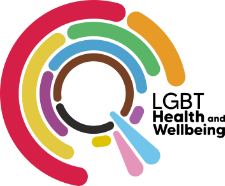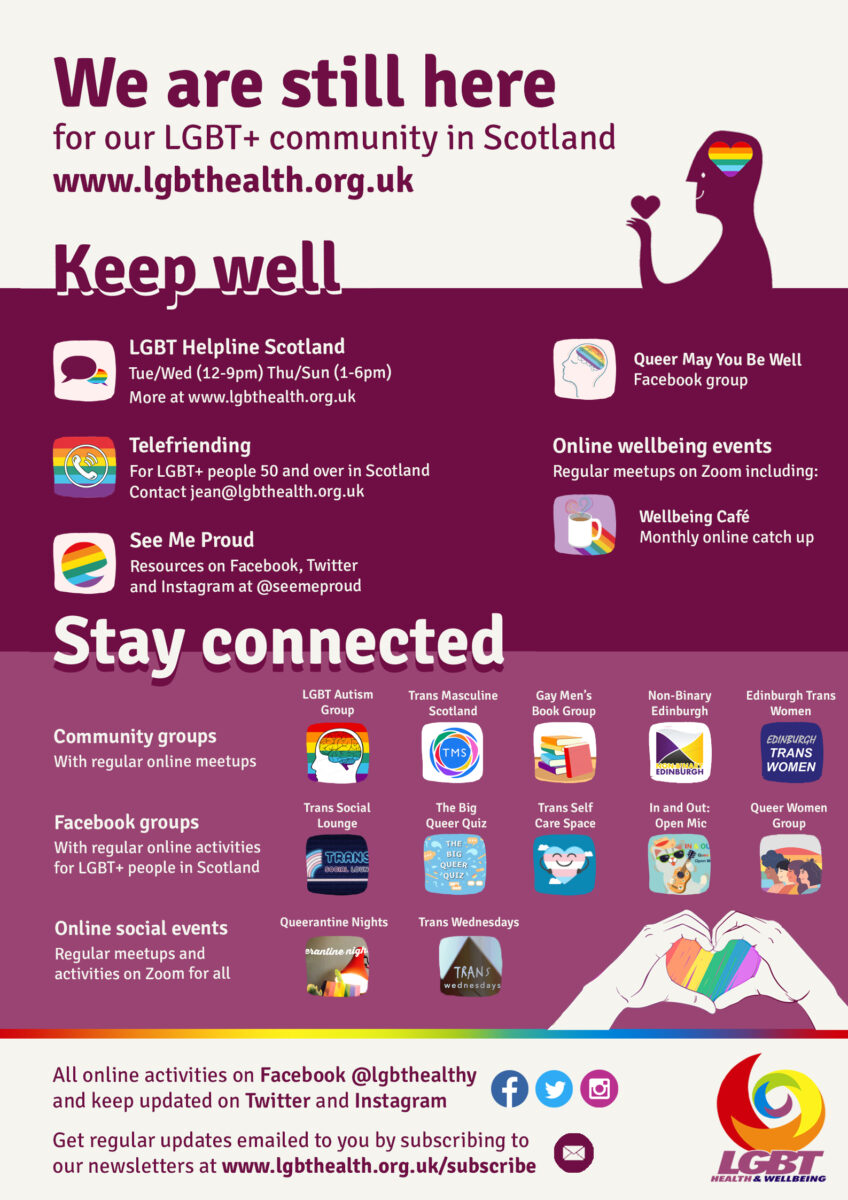Retiring Chief Executive’s journey with LGBT Health and Wellbeing
As I prepare to step down as Chief Executive of LGBT Health and Wellbeing, I’ve been asked to share a bit of my reflections about my journey with the organisation, and some of the challenges and achievements. As it’s LGBT History Month, it seems appropriate to try to capture some of the history of my early rather pioneering days with the organisation, and some of how we got to where we are today
My journey with the LGBT Centre for Health and Wellbeing -as it was then called- started in 2008 when I applied for the post of Manager. The post was advertised as temporary, a five-month contract, something which, whilst not unusual in the voluntary sector in general, is more so for a leadership position. What I did not however realise is that the Centre had in fact shut its doors some months previously, making all the staff redundant. And that the staff in the organigram provided as part of the application pack were in fact, at this stage, merely aspirational. That all became clear at interview, and when I met the last member of staff standing, the Manager who too would soon be departing.
How had it come to this? Like other Healthy Living Centres set up right across the UK to address health inequalities in disadvantaged communities, the organisation had launched in Edinburgh in 2003 with 5 years of Lottery funding. That Lottery funding had come to an end and the organisation was being wrapped up. However, at the eleventh hour, there was the chance of a reprieve, with an invitation to apply to the Scottish Government for some transitional funding. Thus, at the time of my interview the future of the organisation hung in the balance, as an application had been submitted -the outcome of which was not yet known.
In short, accepting the job was a very big gamble. It’s a gamble I would not have taken without the strong drive I had to make a difference to the LGBT community. A drive which had earlier led me to work in the lesbian and gay bookshop West and Wilde for a number of years, as well as volunteer with Lesbian and Gay Switchboard, and campaign against Section 28. It is also a gamble I could not have taken without the unwavering support of my partner, Kate Fearnley, also a longstanding community activist.
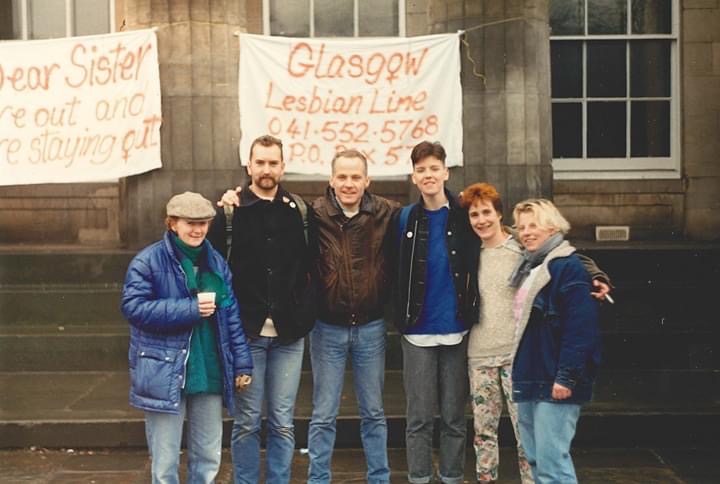
So my time with the organisation had quite a desultory start. I found myself in an empty privately rented 3-storey building on Howe Street (that came with the financial challenge of its eye-watering New Town rent), with as yet no colleagues and the monumental challenge of turning the fortunes of the organisation around, with possibly no more than 5 months to do so.
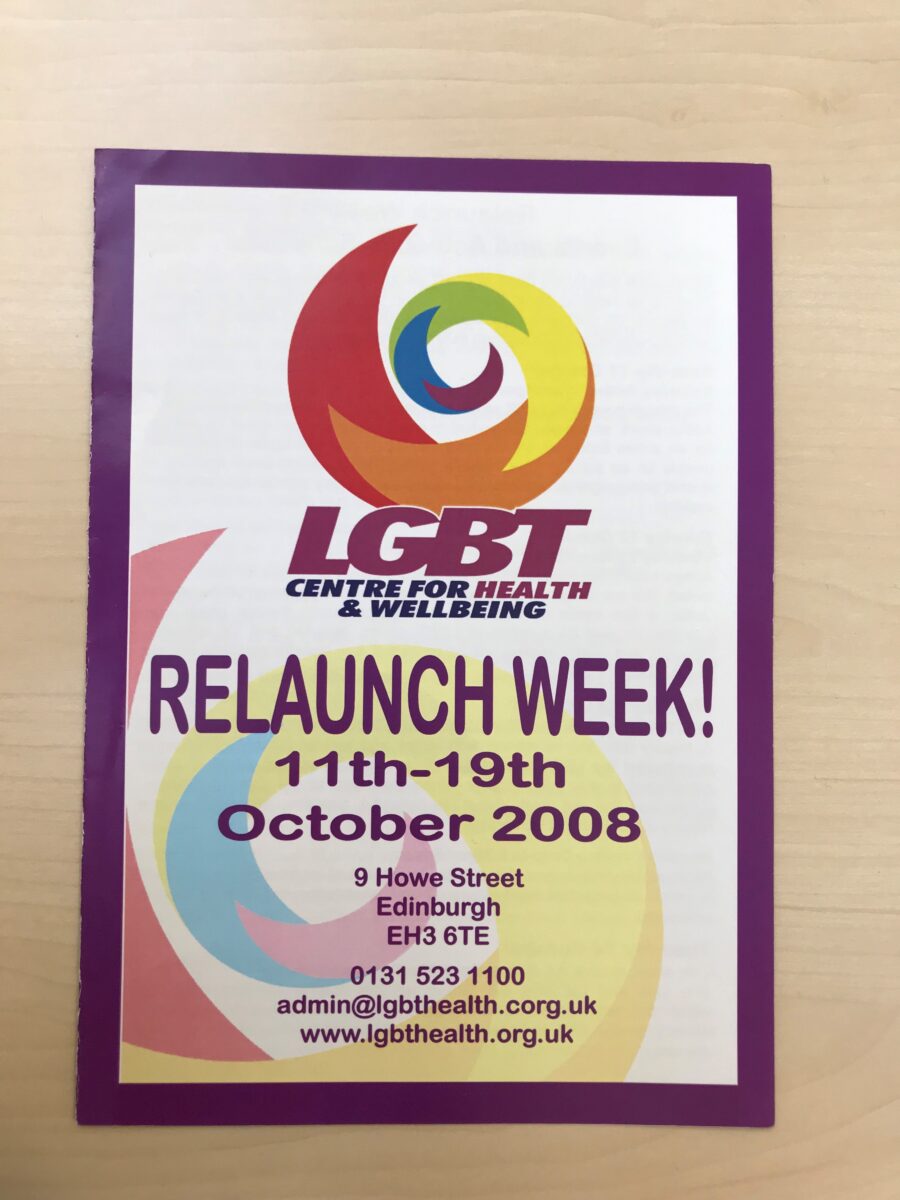 As it turned out, happily the gamble paid off! The relatively modest short term funding from the Scottish Government came through, just enough to recruit a small team and get the wheels in motion. A few months later, in October 2008, we relaunched with a programme of community activities, and have not looked back. Gradually I was able to start securing further funding. The first multi-year funding came from NHS Lothian to support our community programme. Later on, funding came from the Scottish Government for our mental health programme, and I was able to identify trusts and foundations willing to support our work with older people, and our trans programme. In time, we took over what had been the volunteer-run Lothian Gay and Lesbian Switchboard when after 35 years it faltered. It was a much valued long-running community self-help initiative which, like so many others over the years, I’d volunteered with -so to ensure the survival of the service felt especially fitting.
As it turned out, happily the gamble paid off! The relatively modest short term funding from the Scottish Government came through, just enough to recruit a small team and get the wheels in motion. A few months later, in October 2008, we relaunched with a programme of community activities, and have not looked back. Gradually I was able to start securing further funding. The first multi-year funding came from NHS Lothian to support our community programme. Later on, funding came from the Scottish Government for our mental health programme, and I was able to identify trusts and foundations willing to support our work with older people, and our trans programme. In time, we took over what had been the volunteer-run Lothian Gay and Lesbian Switchboard when after 35 years it faltered. It was a much valued long-running community self-help initiative which, like so many others over the years, I’d volunteered with -so to ensure the survival of the service felt especially fitting.
Not just Switchboard, but many of the areas of work we focused on drew on my previous work and volunteering experiences and contacts. For example, the early focus on older people was driven by my many years of working in the dementia field, and awareness of the lack of LGBT visibility and inclusion in mainstream older peoples’ services. And equally other staff within our small team brought their own experience, interests and contacts, which proved instrumental in enabling us to develop initiatives around arts, physical activity and LGBT parenting.
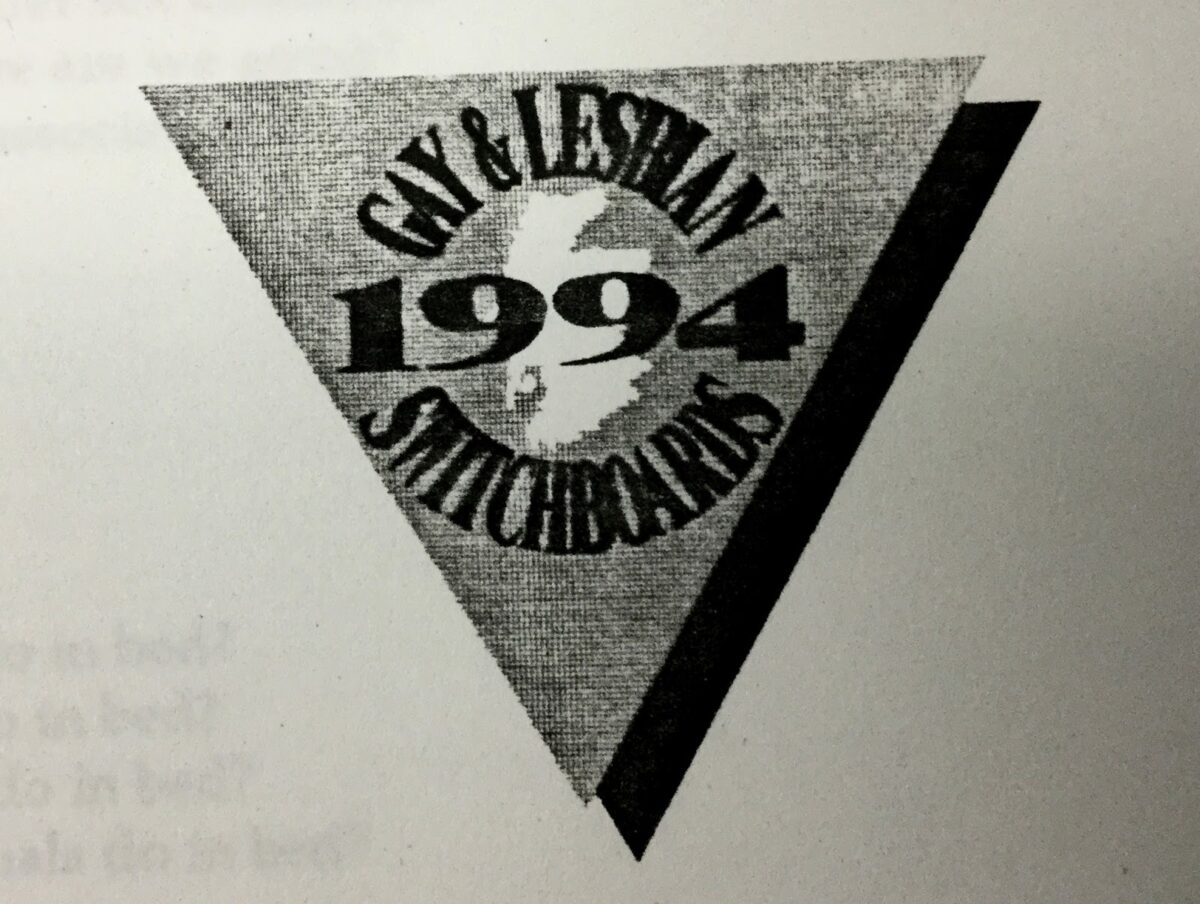
However, there was surprisingly little community engagement and service delivery to build on from the earlier phase of the organisation. Work seemed to largely have been focused on improving LGBT inclusion and raising awareness of the issues within mainstream services, such as the NHS. There had been relatively limited community-facing work, other than short-term programmes. Valuable work had however been started in relation to trans people, with initiatives like T time and trans swimming, initiatives we were determined to try to continue.
This lack of community-facing work meant two things. Firstly, that the organisation had a very low profile within the LGBT community, and there was therefore a great deal of publicity and community outreach work needed. And secondly, that there simply wasn’t a track record to evidence need. This was especially challenging when approaching funders, given that the general awareness around LGBT issues, health inequalities and needs was so much lower than it is now, and we were often having to make the case not just for the organisation and the value of our work, but also for the very need for any of it.
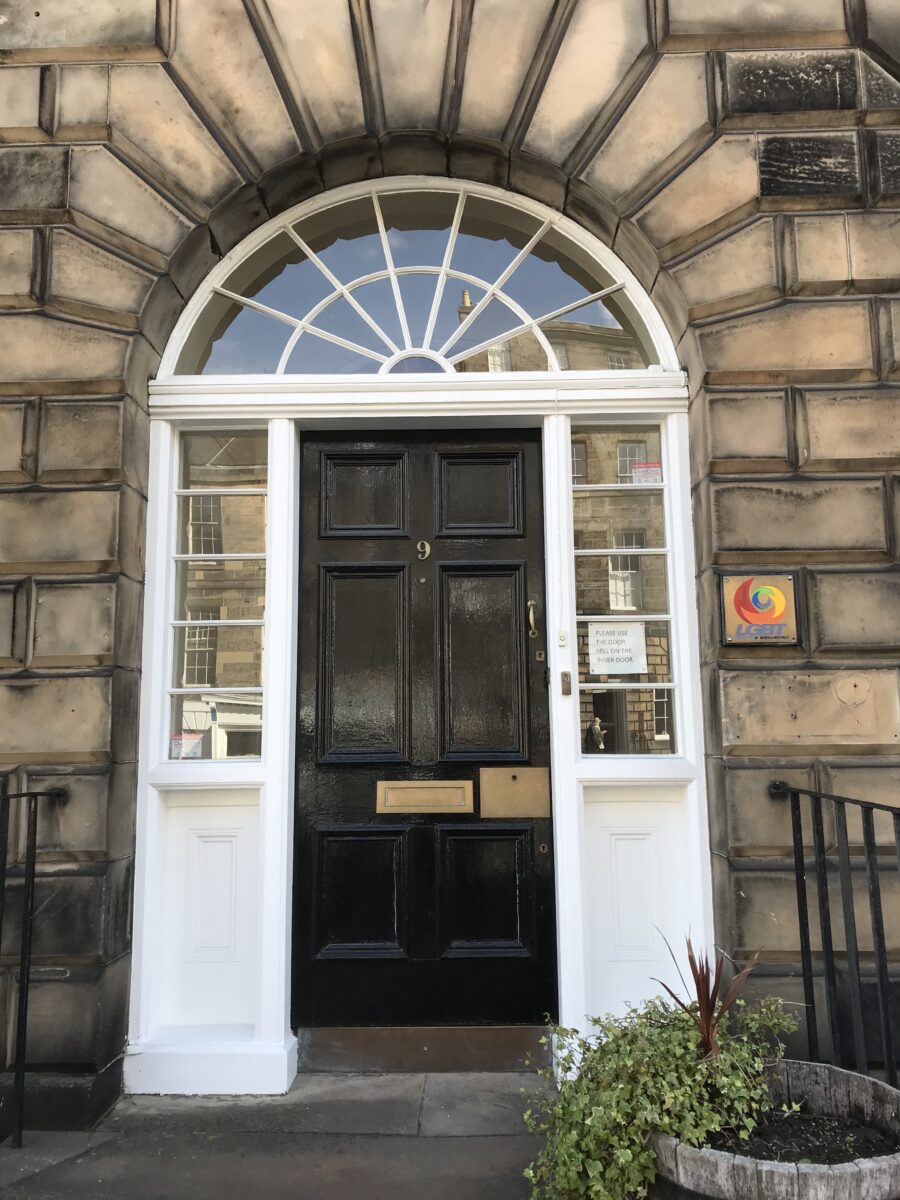
It was however very evident there was lots of work to do! The LGBT community has historically been significantly under-served in terms of support organisations, with most initiatives being led by the community itself and reliant on the time, energy and resources of often just a few individuals, making them precarious and sadly frequently short-lived. Where funding had been available, it had by and large been HIV related and focused on the sexual health of gay and bisexual men. We were therefore keen to not duplicate work being done with that arena, and instead looked to focus on more under-represented groups and issues. This meant an early emphasis on improving mental and emotional health, as well as a weighting of our work towards trans wellbeing and older people.
The work in Edinburgh developed quite rapidly over those first few years, and as I succeeded in securing funding for new areas of work the team, and the programmes we were able to deliver, grew. But growth wasn’t always linear and, in spite of best efforts, some important areas of work and pilot initiatives simply could not be sustained, such as our exploratory work focused on drug and alcohol issues, and our pilot project supporting LGBT people with learning difficulties.
However, having the experience of building up our services from ground zero in Edinburgh meant we had a lot of valuable learning to hand when it came to establishing the organisation in Glasgow. This geographical expansion had never previously been part of the plan, but over the years we’d become increasingly aware of the dearth of service provision for LGBT adults in Glasgow.
Our involvement in trying to support others to re-establish an LGBT Centre in Glasgow, after its demise in 2009, brought us closer to the issues and the need that clearly existed in Scotland’s largest city. This sense was strongly confirmed when, in 2012, as part of our first Scotland-wide project, we started to provide support for trans people in Glasgow.
A couple of years later we had the chance to extend our work with older people beyond Edinburgh, and decided to use this as an opportunity to get more of a foothold in the city and for the first time base a small staff team in Glasgow. And the rest as they say is history.
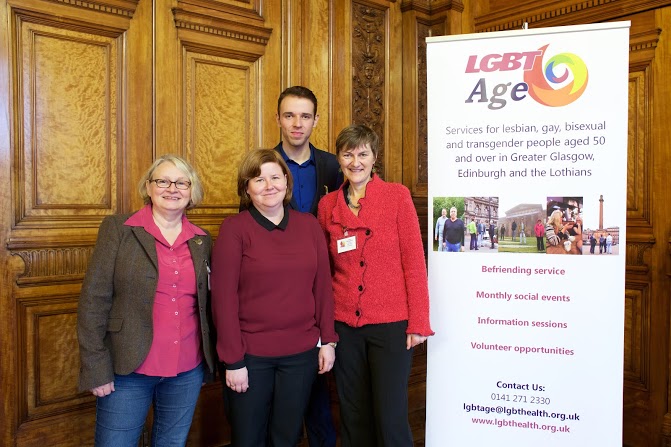
The work of the new Glasgow team grew rapidly from supporting older community members to a much wider offering to the community. The community itself very much welcomed our services, and we saw engagement grow rapidly. Our experience of developing and delivering community services in Edinburgh provided an invaluable roadmap, but we also wanted to make sure our programmes were shaped in a way that responded to local need, and to that aim consulted widely. So for example, our increasing engagement with asylum seekers and refugees led over the course of a few years to establishing a key distinct new strand of work focused specifically on this section of our community.
Other things about the local context proved very different too, not least the challenge of securing statutory funding for our work. Relationships with statutory partners have taken time to develop. In Glasgow we didn’t have the strong links with the NHS that had been made in the earlier phase of the organisation’s history, and these connections were sorely missed. And more generally we realised there were simply a huge number of new relationships we needed to forge at all levels and across so many of the thematic areas our work spans, and we successfully managed to do that, to ensure the organisation was well networked and able to effectively collaborate with key partners.
Through the years, what I’ve set out to do is to shape an organisation that is very much about community, and that operates from within the community it serves. For me it has never been about big personalities, but about creating an organisation where LGBT+ people from all walks of life can feel recognised, represented, supported and included.
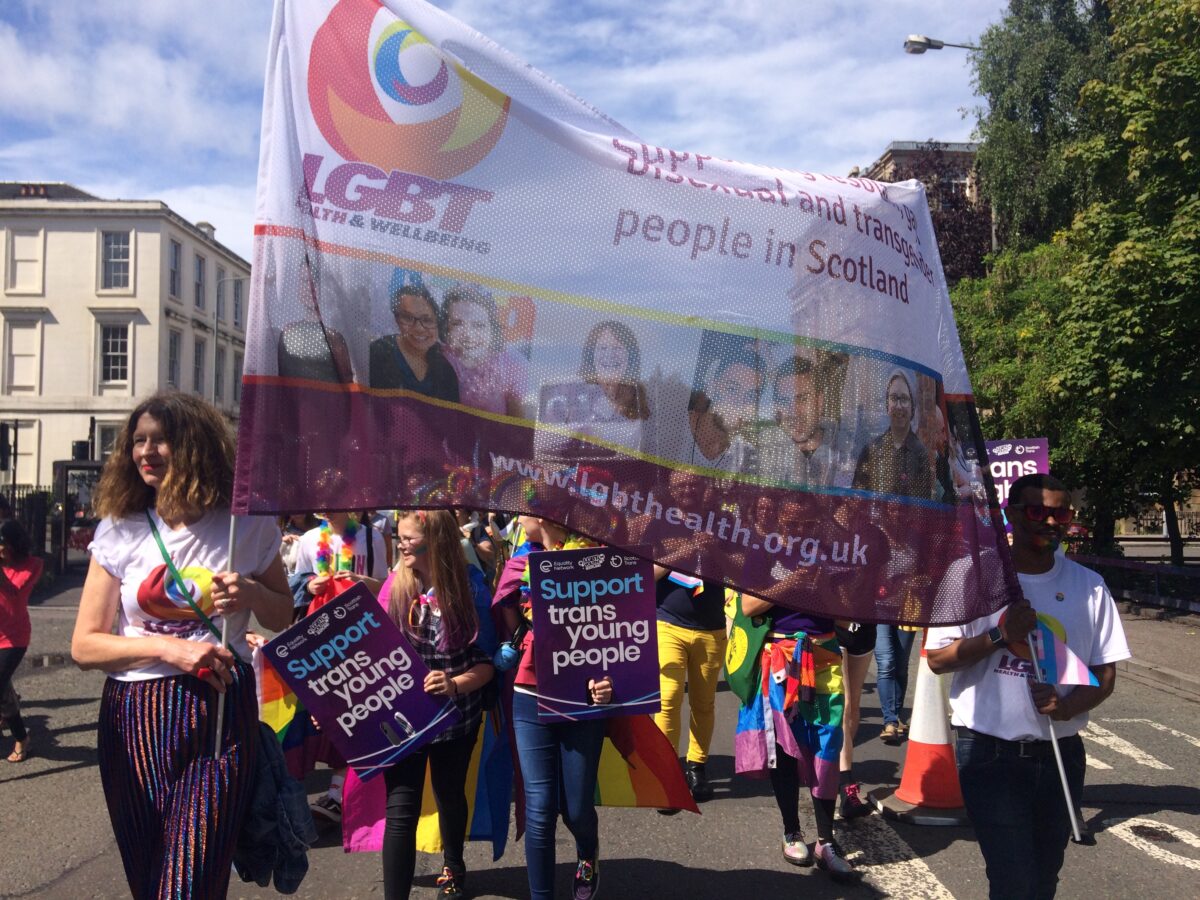
A big part of that community development approach has been finding ways to harness the tremendous skills, energy and talent within that community by providing opportunities for individuals to volunteer with an organisation that promotes their interests. And it’s been great to see more of those volunteers and community leaders have now also joined our staff team.
It’s of course a huge privilege to have the opportunity to do what I’ve done, to rebuild and shape an organisation from the ground up. And to have been able to do this in an area I’m so passionate about. But to be honest, without the huge passion I felt and still feel for the importance of supporting our community, and the ambition, drive, determination and resilience it has required to take the organisation from that one member of staff to the robust organisation it is today, it would simply not have been possible. That passion drove me to take on the challenge in the first place, and it is what has motivated me to continue driving the organisation forward for nearly 14 years, to enable us to achieve what we’ve managed collectively to achieve.
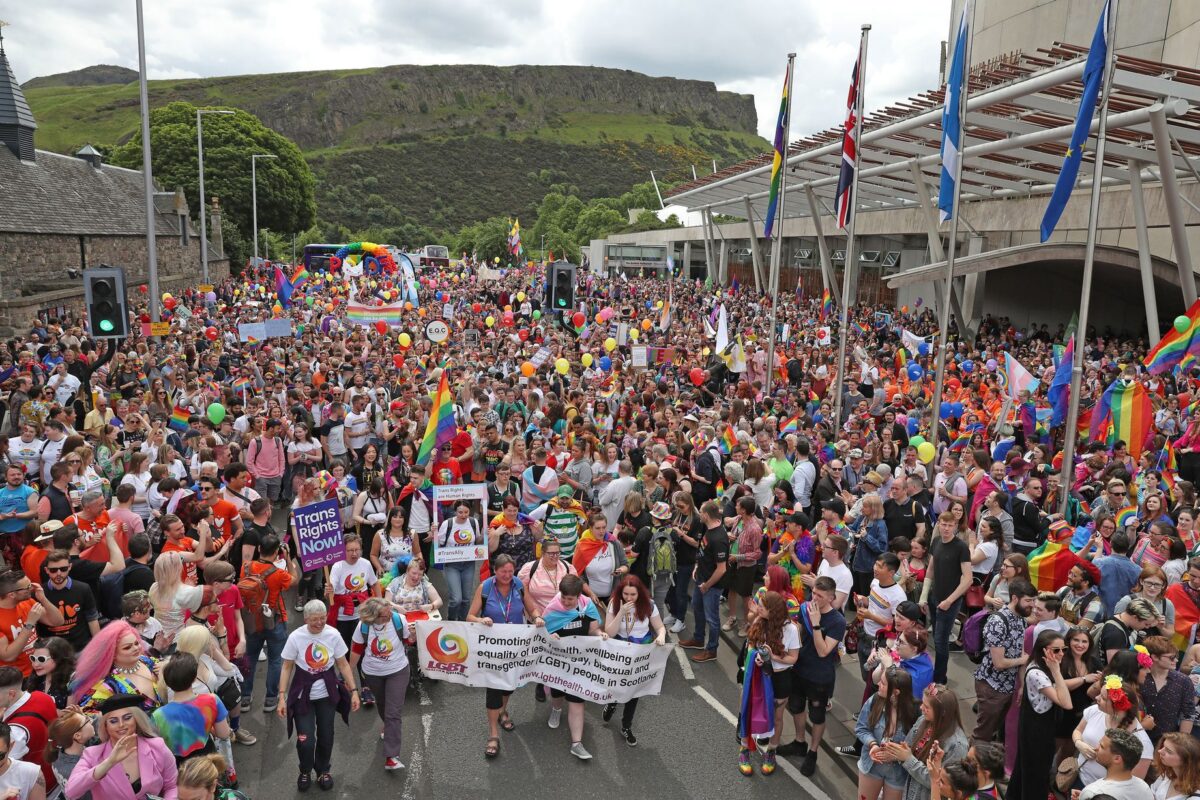
Heading up the organisation has undoubtedly been massively rewarding, but the challenges have also been monumental, and have at times felt pretty insurmountable. And even when surrounded by such a fantastic team, being at the top can at times be a very lonely place to be!
So it’s definitely been a pretty action-packed adventure; and a journey bookended by two major global events. At the start, taking over the charity at the time of the 2008 financial crisis, when its survival looked exceedingly doubtful. And more recently, ensuring that, as a by now well-established charity, we have been able to successfully navigate the impact of the pandemic.
Both these momentous global events have had their impact. Trying to ensure the very survival of the organisation, at a time when public finances were being so dramatically impacted on, undoubtedly added to the challenge of achieving financial sustainability. And of course it made the effort needed to both sustain good work, and secure funding to continue to develop, that bit more difficult. But having climbed what at times felt like an unclimbable mountain in those early years certainly made the struggle to get our Glasgow services and team established feel, if still quite a daunting challenge, at least a bit more possible. And having got as far as we’d got, in early 2020 there was a real collective determination to continue to deliver the support the LGBT+ community so clearly needed. I’m very proud that we immediately switched to remote working and delivery, with no hiatus in service. No-one was furloughed, and I was able bring in short-term Covid-related funding to allow us to further develop our services to reach people isolated by the pandemic, including extending the Helpline and developing the Telefriending Service, as well as work to address the digital exclusion and hardship faced by asylum seekers and refugees.
The organisation is now widely known and highly respected, both for the quality of services we deliver and for the credible way we represent the voices, needs and interests of our community. As part of our local and national policy and influencing work, we’ve been able to position the organisation as a strong advocate and a reliable source of expertise. This has encompassed my work to get LGBT needs included in national policy in relation to mental health and older people.
Our integrity has always been critical to that recognition. I’m proud that we’ve consistently set out to be very transparent about what we do, and that in our reporting we’ve showcased our work truthfully and with integrity.
Looking back over the years, I’m truly astonished at the pace of change and at everything we’ve managed to achieve. What I discovered along the way is that I have a really strong entrepreneurial spirit, which has enabled the organisation to proactively seek new horizons, maximise opportunities, develop and innovate. The pace of change in the organisation has been a huge strength, and it undoubtedly really helped us weather the pandemic.
The other thing I discovered along the way is how unexpectedly good I am at raising money. It’s unusual in an organisation our size for fundraising to remain entirely within the brief for the CEO. However, in this case, given the consistently phenomenally high success rate of our bids, it made complete sense. The organisation is now in a stronger financial position than it has ever been, and its income is now more than 5 times what it was that initial year when I took over the organisation. It’s quite an achievement to have secured over £8 million in contracts, grants and awards over my time with the organisation, particularly when I think back to how hard it has often been to argue the case for funding for LGBT-focused work.
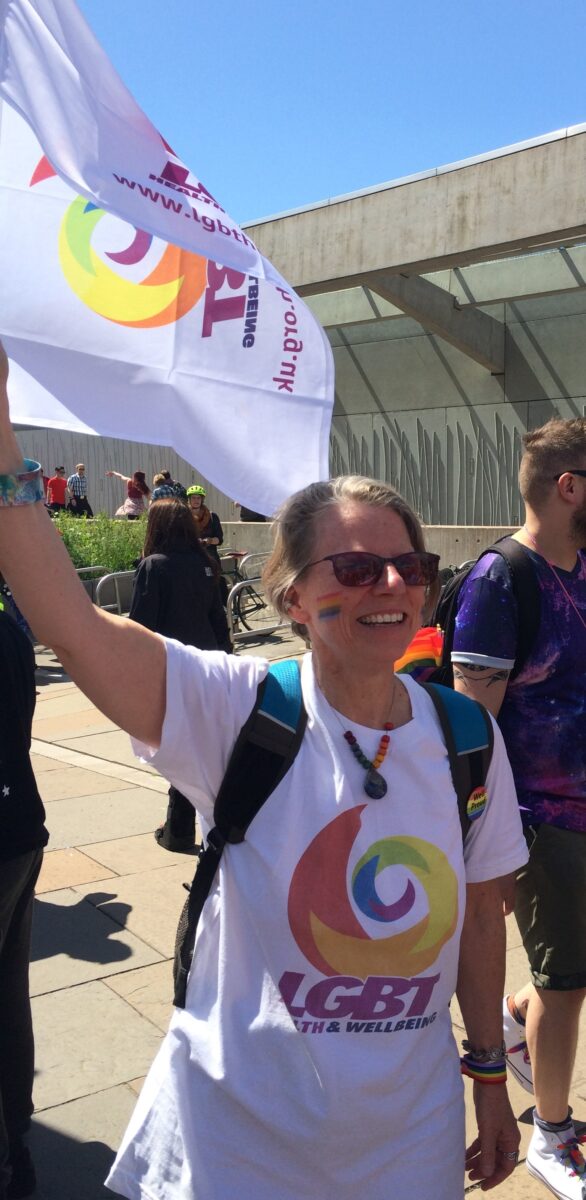
Whilst I’ve focused here on my journey with the organisation, that journey has of course been one that many people have over the years contributed to. It has been a real pleasure to work with such a driven and committed staff and volunteer team. Again and again, I have been delighted and impressed by the calibre of people who want to work with the organisation, and the commitment, creativity and energy they each bring to our collective endeavour. They should be rightfully proud of what we have built together, and the difference the organisation makes to the LGBT+ community.
There are so many reasons to be proud of what the organisation has achieved over the years, and continues to achieve, and I’m delighted to have played such a pivotal role in its journey. The decision to step back has needless to say been a huge wrench – there is undoubtedly so much I’ll miss about being part of LGBT Health and Wellbeing!
However, it does very much feels like the right time, both for me personally, and indeed for the organisation. And I very much look forward to witnessing what the next chapter will look like for this fantastic organisation, and hope to see it very much continue to develop and flourish.
Maruska Greenwood
February 2022
